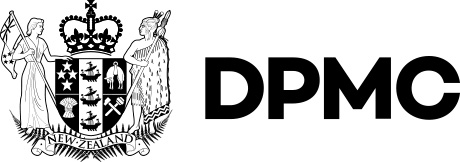We asked
We asked you to provide you views on a set of draft principles and objectives that will guide New Zealand’s engagement in a new United Nations process to negotiate an international cybercrime treaty.
Cybercrime is a growing issue that causes widespread damage and disruption, and New Zealand’s geographic remoteness does not exclude us from the impact. By taking part in this survey you have let us know what issues you think are important for New Zealand to consider, promote and advocate for in the negotiations.
You said
There was resounding support for New Zealand’s participation in the UN Ad Hoc Committee negotiations, with many of you agreeing that international cooperation has become critical to combatting cybercrime. Some of you expressed doubt over how necessary a new international treaty is for New Zealand, especially considering the work currently underway to accede the Council of Europe's Budapest Convention. However, there was consensus that, if the process is going ahead, New Zealand should have a seat at the table. Furthermore, you agreed with our stance that the new treaty should complement and build upon international instruments like the Budapest Convention, rather than conflict with them.
Points referencing the protection of Māori and indigenous rights and interests garnered overwhelming support, with an appreciation for the strong wording around the value placed on our commitments to Te Tiriti o Waitangi.
Many of you advocated for more explicit language regarding New Zealand’s commitment to ensuring international human rights law is upheld in the negotiating process and remains front of mind in the implementation phase of any eventual treaty.
Finally, the importance of keeping the negotiation process open and inclusive for a broad range of stakeholders resonated with many of you. We understand that states have a limited influence in ICT matters. The expertise and insight of industry and civil society will be crucial for the development of a robust, practical, and effective international instrument against cybercrime.
We did
Using your comments, we were able to update our draft principles and objectives and formulate a national submission which was lodged with the Ad Hoc Committee secretariat at the UN on 29 October. The national submission sets out New Zealand’s aspirations for the treaty and the values that will be front of mind for New Zealand as the negotiations progress. You can view New Zealand’s national submission as well as submissions from other member states on the Ad Hoc Committee website.
We have also used your thoughts to develop a national approach which will be taken to Cabinet in December. Once approved, New Zealand will then have an official negotiating mandate from Cabinet and can begin preparing for the first negotiating session taking place in New York from 17 January 2022.
The depth and range of the responses we received were invaluable to us in this process. We would like to thank everyone who took the time to provide their input. As we have said, this is just the beginning of a long-term process and we are committed to keeping an open dialogue with all interested stakeholders throughout. Watch this space for more opportunities to have your say and keep up to date with how the negotiations are tracking.
A call for applications for interested industry and civil society groups to participate in the negotiations has been advertised on the Ad Hoc Committee website. If your organisation is interested in participating and has any questions about what to expect, please don’t hesitate to get in touch with us at consultation@dpmc.govt.nz. Applications close on 1 December.
